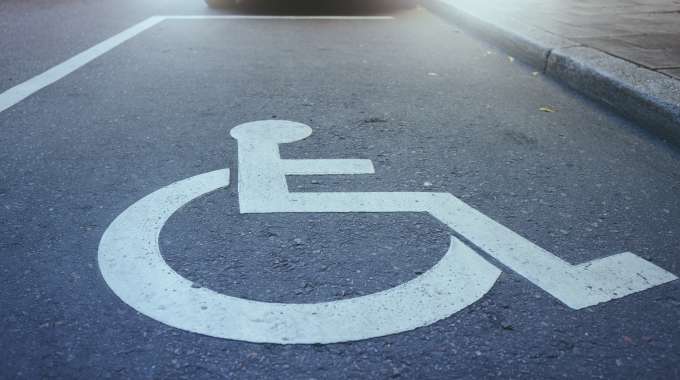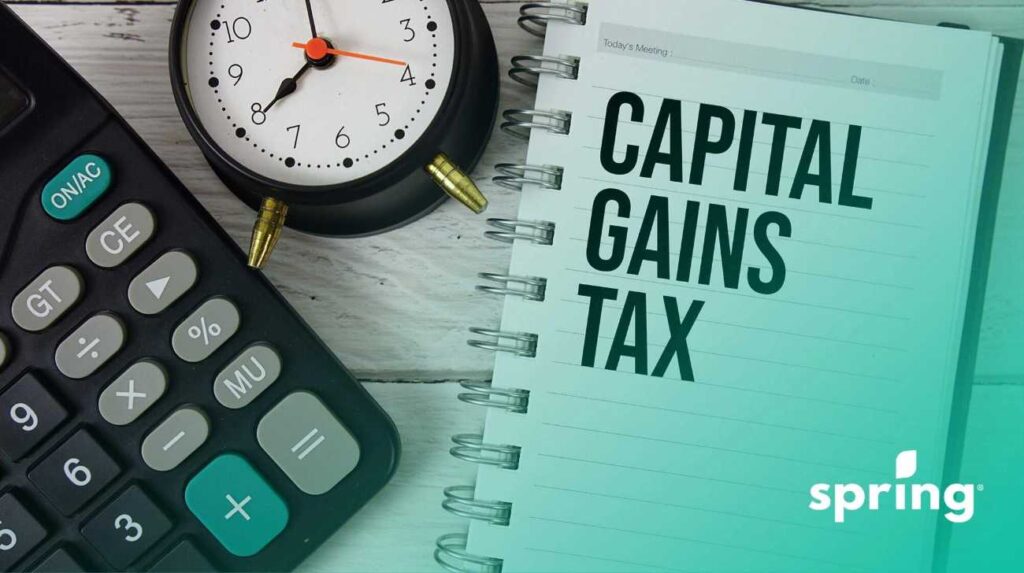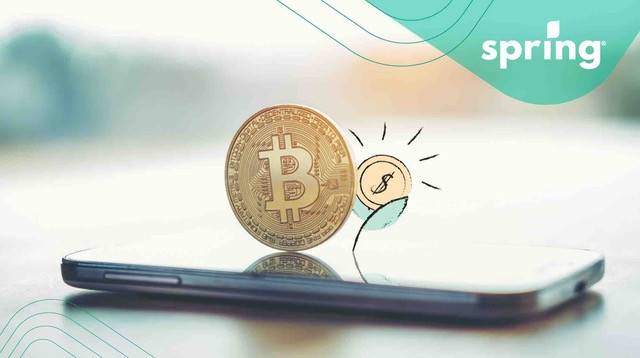Well, you may be surprised to find out that they don’t work exactly how you think. Credit cards can be very beneficial, but they can also have a negative impact on your credit score as well as your overall financial situation. Let’s take a look at the specifics.
How Credit Card Interest Works
It’s important, when using your credit card, to know not only what the interest rate is but how it’s calculated. That’s because credit card interest is calculated much differently than other forms of lending, like personal loans and lines of credit.
When the interest is calculated on your credit card, it’s done so using compound interest. Unlike other forms of credit, the interest is compounded daily. In order to get your monthly interest amount every day, the balance from the day before is used to calculate the interest.
These amounts are then added up to get your monthly interest charges. Once that is calculated, it’s then paid from your monthly minimum payment (the minimum amount required every month) amount, leaving little to pay the principal amount.
Because of how the interest is calculated, paying off a credit card can be very difficult. If you’re only making your minimum payments, it can seem almost impossible to pay it off, especially if you keep using it. The best way to pay off your credit card is with large, frequent payments. You’ll have less interest, and you’ll be paying off the principal amount faster.
How Credit Card Payments Work
When it comes to credit card payments, it’s important to understand how they work in order to help you pay them off faster. In order to do that, though, we need to start by talking about the credit card balance.
With credit cards, you’re essentially borrowing money until you can pay it back. Every month your total balance is calculated and must be paid by the due date to avoid extra fees and interest. Your credit card balance isn’t just the amounts you have spent, though.
It also includes any fees and your interest incurred as well. From this amount, your monthly minimum payment is calculated. Making this payment on time and keeping a positive payment history is what keeps you in good standing with your credit card company. I
t’s important to make these payments to avoid missed payments on your credit report, so credit card issuers offer limit increases. That said, your minimum payment doesn’t cover much of your principal balance. The best way to use your credit card responsibly is to pay it off when you get your credit card statement.
You can make your credit card payments in a few different ways. You can use your rewards to make a payment (it doesn’t count as your minimum payment), make a cash deposit with your bank, or make online bill payments to your credit card account.
Credit Card Limits and Why They Matter
The limit on your credit card is important for two reasons: your credit score and your spending limit. In regards to your credit score, your credit limit is part of your credit utilization. The higher your credit utilization, the more negative of an impact it has on your credit score.
Credit limits on revolving credit, such as credit cards and lines of credit, work differently than that of personal loans. With revolving credit, you’re given a limit, and you can spend and repay that amount as much as you’d like.
The limits of your different revolving credit lines added up is your total credit limit. It’s recommended that you stay below around 30% of your available credit limit in order to keep your credit score in the best standing. Going over that amount, you could end up having a negative impact on your credit score.
If you max out your credit limit, it’s important to remember that if you go over, you run the risk of incurring extra fees. You also run the risk of not being able to pay off your total balance, depending on what your credit limit is.

Different Types of Credit Cards
When you’re deciding which credit card is best for you, it’s important to keep your options open. There are plenty of different credit card options for you to choose from, and just a quick online search can help you compare credit cards.
Technically speaking, though, there are two types of cards, unsecured credit cards and secured credit cards. There are plenty of different types of secured credit cards. Here are some of the most popular options as well as a look at secured credit cards.
- Low-interest credit cards
- No-fee credit cards
- Secured credit cards
- Rewards credit cards
- Balance transfer credit cards
- Business credit cards
- Student credit cards
- Store credit cards
Before you go applying for any credit card, it’s best to figure out what you want the credit card for and what qualifications you meet first.
Low-interest credit cards, rewards credit cards and balance transfer cards usually all have a minimum credit score. Some of these credit cards also have minimum income requirements. If you don’t meet these requirements, then you’re best to look for a different card.
Secured cards are a type of credit card used to build credit. The card issuer requires a security deposit that can be returned to you once you cancel the card. Your credit score and income will also make a difference in determining the amount that you’re approved for.
As a student, you can qualify for a credit card with your financial institution, usually for a lower rate than a traditional credit card. This is valid while you’re in school and for an allotted period of time after that.
No-fee credit cards are the average credit card that most people start with. A lot of them offer rewards as well as other great incentives. Many of these kinds of cards come in the form of store credit cards and offer specific rewards on purchases at that store. Lastly, business credit cards are only available to those who own a business and meet any other specified requirements.
Cash Advance Rates
If you have a credit card, then you’ve probably seen that there is a standard purchase interest rate as well as a cash advance interest rate. This rate is normally 2% to 3% higher than your standard interest rate. What does that mean exactly?
Well, if you withdraw cash from the ATM or use credit card cheques instead of using it for a standard transaction, then there will be an added percentage. Also, there’s no grace period on cash advances, so you get changed interest on the amount until it’s paid back in full.
Credit Card Interest-Free Grace Periods
A credit card grace period is the amount of time you have from the date of purchase until you have to start paying interest on the amount. If you pay it before this date, then there’s no interest calculated.
The amount of time that you have for a grace period depends on the type of credit card you have. It can range anywhere from 21 to 55 days. In order to avoid paying interest and using too much of your credit limit, it’s best if you pay off the amount before any interest is calculated.
Interest and Paying Your Bill in Full
If you pay your bill in full every month, you don’t pay any interest.
Are Credit Cards Necessary?
While it isn’t necessary to have a credit card, there are quite a few reasons that you should have one. They’re a great way to keep emergency funds on hand, they offer extra protection on purchases, and they can help build your credit score. It used to be that there were certain online purchases you could only buy with a credit card, but now with the invention of Visa and Mastercard debit cards and PayPal, they aren’t really needed.
Credit Cards Vs Debit Cards
Essentially, debit cards use the money you already have in your bank account, and credit cards use a line of credit to borrow money. That said, they both have limits, though. Credit cards have a maximum credit limit (the maximum amount you can spend on your card), and debit cards only allow you to spend as much as is in your account. If you have overdraft protection, you can spend more, but you will incur extra fees.
Another great thing about debit cards is that they don’t usually have a lot of fees attached to them. Credit cards tend to have more. Some have annual fees, as well as cash advance fees and interest on all transactions.
One thing credit cards do that debit cards don’t, though, is build your credit. For most, a credit card is the first way we begin to build our credit history. As you use your card wisely and pay your bill every billing cycle, as these transactions are reported to the major credit bureaus. As long as you make these payments every billing period on time and keep your credit utilization low, you’re having a positive impact on your credit.
Advantages and Disadvantages of Credit Cards
While credit cards can be overwhelming, they aren’t all bad as long as they’re used properly. For starters, when used properly, they have a positive impact on your credit score. Plus, depending on the type of credit card that you have, you can earn some great rewards. There are tons of different options to choose from, including points, travel rewards, cash-back rewards and more. Many of these options are also available with no-fee credit cards.
Using your credit card to make online purchases isn’t always necessary anymore, but did you know that many credit card companies offer extra protection on purchases made with their cards? Often you get an extra warranty period which can be very helpful. Many also offer:
- Travel perks
- Concierge services
- Roadside assistance
- Companion vouchers
- Extra free cards
This is just the beginning, though. Each card you have will have different options, so it’s important to do your research so you can take advantage of these perks.
If purchases on your credit card aren’t made by you, fraud prevention is also offered. This means that purchases made by someone you don’t know with your card could end up being covered. Plus, cash isn’t as common these days, so having an extra way to spend if you need it is always a bonus.
However, even with all of these perks, there are some downsides to credit cards. It can be very easy to overspend and end up with credit card debt, especially if you have a higher credit limit. It can also be difficult to pay off if you don’t pay bills in full every month. This is because credit card interest is high and adds up quickly. Paying it off fast is vital to keeping yourself out of debt.
Average Interest Rates in Canada
The interest rate on your credit card depends on the kind that you apply for, as well as your interest rate and yearly income. That said, the average interest rate for credit cards in Canada is between 19.99% and 25.99%. With more specialized cards, you can get interest rates anywhere from 4.99% – 15.99%.
When you’re in the market for a credit card, you’ll notice that they usually have a promotional interest rate and/or an extended grace period. These can be really beneficial as long as you pay attention to the interest rate after the promotion is over.

Credit Card Fees
The type of credit card you choose will be based on what you intend to use it for. That said, they all come with fees, though, so let’s look at the different types of charges and fees associated with credit cards.
Annual Fee
An annual fee is a set sum you pay every month in order to use and earn the benefits of a certain credit card. These fees can range anywhere from $30 to $150 per year, sometimes even higher. Often these cards also have specialized interest rates, and some even have income requirements. They usually have high-limit options as well. Depending on the credit card providers, many offer the first year’s fee to new cardholders.
Cash Advance
As we mentioned above, there’s an extra fee when taking money from an ATM with your credit card. The cost is higher than normal transactions.
Purchase Rate
The purchase rate is the interest rate charged on all standard credit card transactions. This means all transactions are done in CAD dollars using your card in-store or online. Depending on your card, there will be a grace period before you start having to pay interest.
Foreign Transaction Fees
If you’re buying items in a foreign country or another currency, most credit cards charge a 2.5% foreign transaction fee. That said, though, the fee can range anywhere from 1% to 3%. There are specific travel cards that don’t charge them at all.
Balance Transfer Fees
A balance transfer fee is issued when you move the outstanding balance of one credit card to another. The amount of the fee depends on the card. It can range anywhere from 1% to 5%. While balance transfers can be expensive, many people choose to do this if the overall interest rate is lower on the new card. Some cards will even offer 0% interest for 12 months with a low balance transfer fee. If you know this will make paying off your credit card easier, it could be a good option.
Where to Get a Credit Card
In today’s day and age, there are so many different ways you can get a credit card. You can get one through your financial institution, where you do your daily banking, your favourite grocery store, and even online. With the ability to get so many different credit cards, making a decision can be difficult. Luckily, one search can find you all the information you need on that card.
Overview
Making the choice of whether or not to have a credit card can be difficult. Let alone what to do with it once you have it. It can be very easy to overuse your card and end up in some hot water. That said, there are plenty of ways a credit card can be beneficial to you. They can boost your credit score, provide you extra protection on your purchase, and help to protect you from fraud.
That said, not using your credit card wisely can be dangerous. If you do end up overspending and borrowing more money than you can pay back in one payment, don’t worry; you can still recover. You can get a personal loan to pay it off or get a balance transfer credit card to help save yourself some money on interest. No matter what you choose to do, though, it’s not impossible to pay it off. The key is to make large, frequent payments to avoid more interest.








